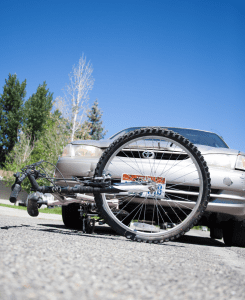Car accidents can be stressful, but you shouldn’t let that stress hamper your negotiations with a personal injury adjuster. Getting a fair settlement is your prerogative–it’s why you pay for insurance.
When my car was rear-ended in the parking lot of a strip mall one night, I was confused about filing a claim. I didn’t have the knowledge about how the whole process worked.
The only thing that I could think of was to call my auto insurer and report the damages to them. And, that’s the first step you should also take whenever you decide to file a claim.
Luckily, the at-fault party’s insurer was the same as mine and the damage was minor, so the company resolved it without bothering me much.
However, would the claims process be as simple if there was another insurer involved or if it was a major accident? Probably not.
You might have to work with multiple personal injury adjusters (usually two) representing each party involved in the accident. They will try to get as much details from you as possible to determine liability and the settlement amount.
What is an insurance claims adjuster or personal injury adjuster?
To investigate any accident, insurance companies need all the details about how the accident happened, who caused it, how many people were injured, and time and day of the accident. Since an accurate record of all the details is required, insurers assign a personal injury adjuster who collects the information and makes a report.
Remember: personal injury adjusters connect with all the parties involved in an accident to weave the whole story together – which means that you will have to speak to the other party’s adjuster as well.
In practice, insurance adjusters have the authority to negotiate claim settlements with the claimant. That’s why you should know how to deal with a claims adjuster.
Depending on your situation, you may also have to decide if you need a lawyer to deal with a claims adjuster.
Whichever route you choose to get reimbursement for damages – do remember that insurance adjusters work for the auto insurance company, so their loyalties lie with the auto insurer.
Understanding the motivations of an insurance adjuster
Since every insurer wants to maximise its profits, personal injury adjusters aim to minimize the claim payout as much as possible.
However, they also want to avoid the possibility of a civil lawsuit as a result of an inadequate settlement. Because a court case would lead to a long trial process where the judge will take time to determine who was at fault and if the compensation awarded was appropriate.
For an insurance company, this is always the costlier option because they would have to pay what the judge deems as the right compensation along with the attorneys’ fees. And, it would definitely harm their reputation as well.
Therefore, adjusters always play it safe by keeping the claimant satisfied with the settlement amount.
Key factors that may influence your settlement offer
Before accepting any offer by your insurance adjuster, you should know what factors are taken into consideration for determining your claims settlement amount.
On the surface, you might have only suffered personal injuries and a few dents on your car, but you must think through about all the losses incurred or you may incur in the future as a result of the accident.

Here are some factors that you should consider:
- Medical injury expenses and any future expenses you may incur on physical therapy or rehabilitation for yourself and any co-passengers.
- Repair or replacement cost of your car.
- Loss of income due to your inability to get back to work as a result of injuries.
- Pain and suffering.
Tips for dealing with a personal injury adjuster
After an accident, you would either get a call or a visit within 24 hours from your personal injury adjuster. By this time, you may or may not be prepared to deal with all the queries that your adjuster has for you, so be very careful about divulging any information about the accident.
1. Organize documents and receipts before meeting an adjuster
If you’re severely injured, we understand that it wouldn’t be possible for you to organize any documentation or give an account of what happened. In that case, your family members can maintain a record of expenses incurred for medical injuries, photographs of the accident, and the receipts for car repair.
If the accident was minor, make sure that you take all those steps by yourself before meeting an adjuster and if you need more time to organize documents, communicate your timeline to the adjuster.
Do not give a recorded statement about the accident unless you’re completely at ease as it can be used against you.
2. Settlement for medical claims
If your medical injuries are severe enough for hospitalization, make sure you delay the settlement until you have recovered or are aware about how much your treatment will cost.
Estimating medical expenses can be tricky because it might take a long time for you to get back to normalcy. Your adjuster may try to estimate the amount citing their experience with similar cases but you shouldn’t give in to pushy adjusters.
You should instead wait for your discharge, analyze your medical records yourself, and seek your physician’s opinion about any future treatments before accepting a settlement from your insurer.
Do remember that you have to abide by the statute of limitations in your state for filing a lawsuit, which dictates the time limit for a legal claim.
3. Hire a Personal Injury Lawyer
For minor accidents, you can deal with an adjuster because the settlement amount is low. But, for major accidents, insurers may try to manipulate you into accepting an amount lower than what you should be paid.
On the other hand, personal injury lawyers are better equipped to assess your damages and fight for your benefit to get an appropriate settlement amount. Lawyers also have the right experience to negotiate with adjusters and prevent them from manipulating you.
When it comes to understanding your medical bills, it takes the most gifted lawyers to request the documentation from a hospital and then seek reimbursements from an insurer.
4. Car repairs after an accident
Insurance companies will always push their preferred auto repair shops to fix your damages because they negotiate special deals with auto shops.
Do not fall into this trap in the hopes that your insurer would happily settle those damages. Their preferred auto repair shops might not be motivated to use Original Equipment Manufacturer (OEM) parts because they cost more.
If you know a trusted repair shop, get your car repaired from there and the insurer will have to settle damages within a reasonable range. Your auto insurer might authorize after-market parts only which may or may not match the standards of the OEM parts, so you should speak up if you want OEM parts.
5. Reaching the Final Settlement
Negotiating a personal injury settlement is a skill that adjusters are trained on while on the job. Naturally, auto owners aren’t as experienced or knowledgable as adjusters because they don’t get involved in accidents everyday.
If the first settlement offer is very low and hurried, you can reject it politely and give your reasons for expecting a larger amount. Usually, the adjuster will come back with a more reasonable settlement offer for you to assess. Do examine the details and terms carefully before signing any document.
If the adjuster refuses to cooperate with you, feel free to connect with a personal injury lawyer to get a second opinion. Most lawyers won’t charge you for the first consultation during which you can know if your demands are reasonable or not.
Under no circumstance should you sign a settlement agreement if you have any ounce of doubt about the amount of compensation offered.
Summing up
Car accidents can be stressful, but you shouldn’t let that stress hamper your negotiations with a personal injury adjuster. Getting a fair settlement is your prerogative–it’s why you pay for insurance.
If you feel that you’re being treated unfairly, you also have the option to file a complaint against an insurer with the National Association of Insurance Commissioners. Or, with the help of a personal injury lawyer, you can seek compensation for your injuries. If your demands are reasonable, chances are that the judge will rule in your favor.


Join the conversation!